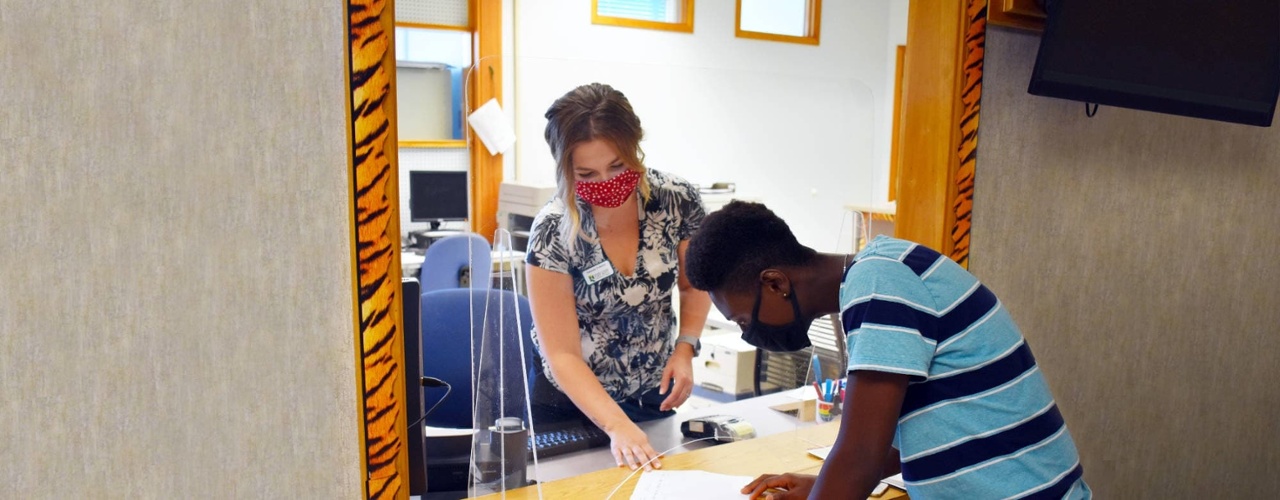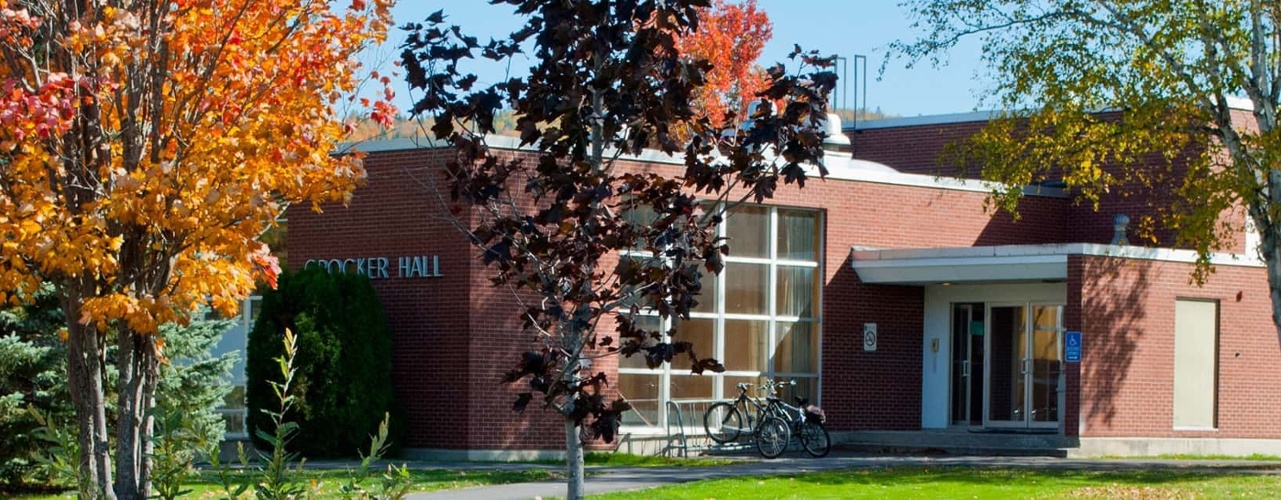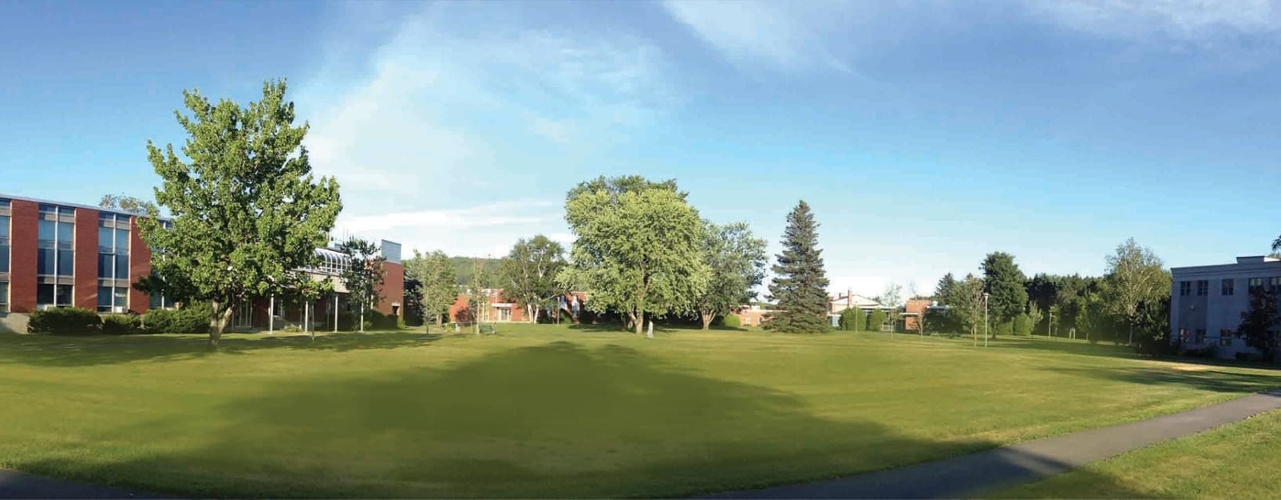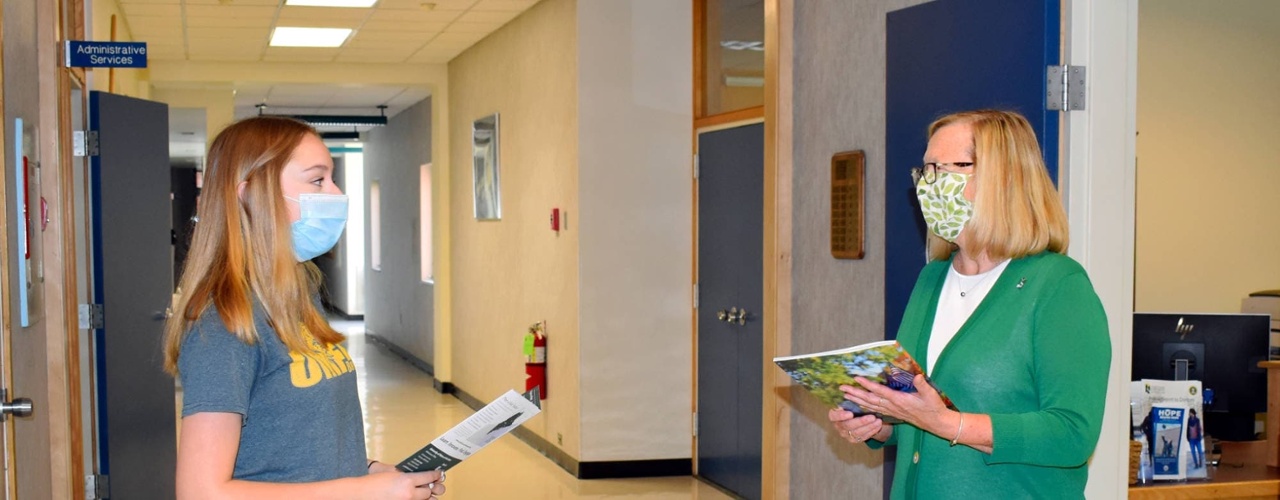
Latest News
UMFK's Dr. Kimberly Borges-Therien named to Trustee Professorship
February 20, 2013
Note: this is an archived news release. As such, the information provided may no longer apply.
NR13008
University of Maine System Chancellor, Dr. James H. Page, has appointed University of Maine at Fort Kent Associate Professor of Environmental Studies, Dr. Kimberly M. Borges-Therien, to a UMS Trustee Professorship for the 2013-14 academic year.
Dr. Borges' appointment is for her pilot study of Benthic Macroinvertebrate Diversity in a northern Maine river using DNA Bar-coding Analysis. Dr. Borges' study is expected to focus on the Fish River in Fort Kent, and will involve students enrolled in a UMFK Limnology class.
A benthic macroinvertibrate is an animal or insect that lives at the bottom of a river or stream, is large enough to be seen with the naked eye, and which has no backbone.
Benthic macroinvertibrates include the larvae of mayflies, stoneflies, caddisflies, dragonflies, aquatic beetles, and several types of true flies. These organisms are abundant and are known to play key roles in aquatic ecosystems. Many species can survive only in water that has appropriate microhabitants, sufficient oxygen, and the absence of certain pollutants. Other organisms, such as the larvae of certain midges and mosquitoes, can tolerate degraded water conditions.
The study will contribute to the field of water quality monitoring by providing new data on benthic macroinvertibrate insect diversity in northern Maine. Additionally, although a small-scale project, it likely will be the first use of DNA bar-coding on organisms in Maine rivers, thereby making its outcomes of interest to other water quality researchers in Maine.
The pilot study to be conducted by Dr. Borges is anticipated to deliver three outcomes: 1) implement DNA bar-coding methodology using aquatic insect samples from the Fish River; 2) learn whether bar-coding expands the inventory of documented aquatic insects in a segment of the Fish River; and, 3) obtain a limited assessment of the utility of DNA bar-coding in water quality monitoring.
DNA bar-coding methodology is rapidly becoming an important tool in biodiversity assessment of animals and plants globally. The pilot project will provide UMFK students with the necessary training in an emerging technology that is applicable to all life forms.
The students who will work on the project will gain experience in scientific research practices in general, and in water quality and DNA methods in particular. The project targets BIO 380 Limnology students specifically. Those same Environmental Studies students previously completed the Howard Hughes Medical Institute-affiliated Phage Isolation and Genomics laboratory courses during the 2012-13 academic year. The pilot project will afford them the opportunity to further develop their research and DNA technology skills in a subject that is relevant to their field of study.
An added value of the pilot project is the acquisition of instrumentation that is essential to a DNA analysis laboratory. Students in several Biology and Environmental Studies laboratory courses at UMFK will be able to gain valuable experience from the instruments.
Trustee Professorships, approved by the UMS Board of Trustees, are devoted exclusively to honoring and supporting outstanding University of Maine System faculty already making noteworthy contributions to academic excellence on their campuses and within the System. The awards provide release time and support for faculty to undertake research and other scholarly/creative endeavors not feasible within their normal workload. The program is designed to assist UMS institutions in recognizing, rewarding, and retaining exceptional scholars, and, in so doing, promoting excellence in teaching, scholarship, and research throughout the University of Maine System.
Dr. Borges' appointment to the trustee professorship was recommended by the UMFK Academic Council, Vice President of Academic Affairs, Dr. Rachel E. Albert, and President Wilson G. Hess.
Dr. Borges teaches courses in Environmental Science and Biology. Her research interests are in the areas of water quality and freshwater microbial ecology. She has actively been involved in studies of local lakes and streams for nutrient and fecal contamination.





